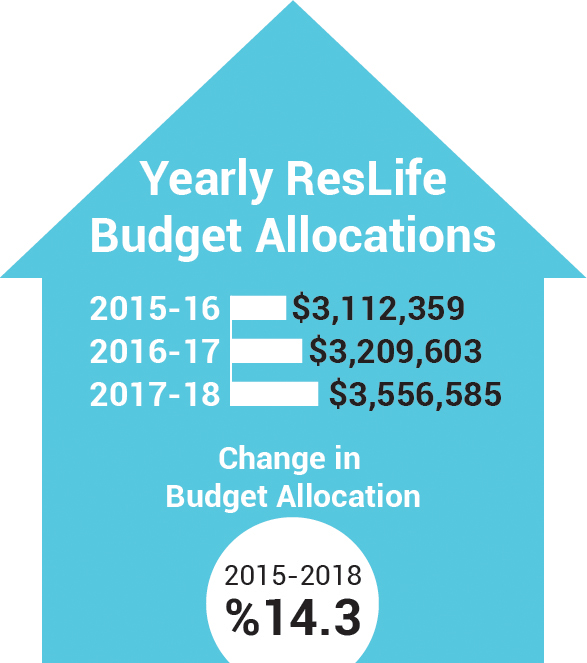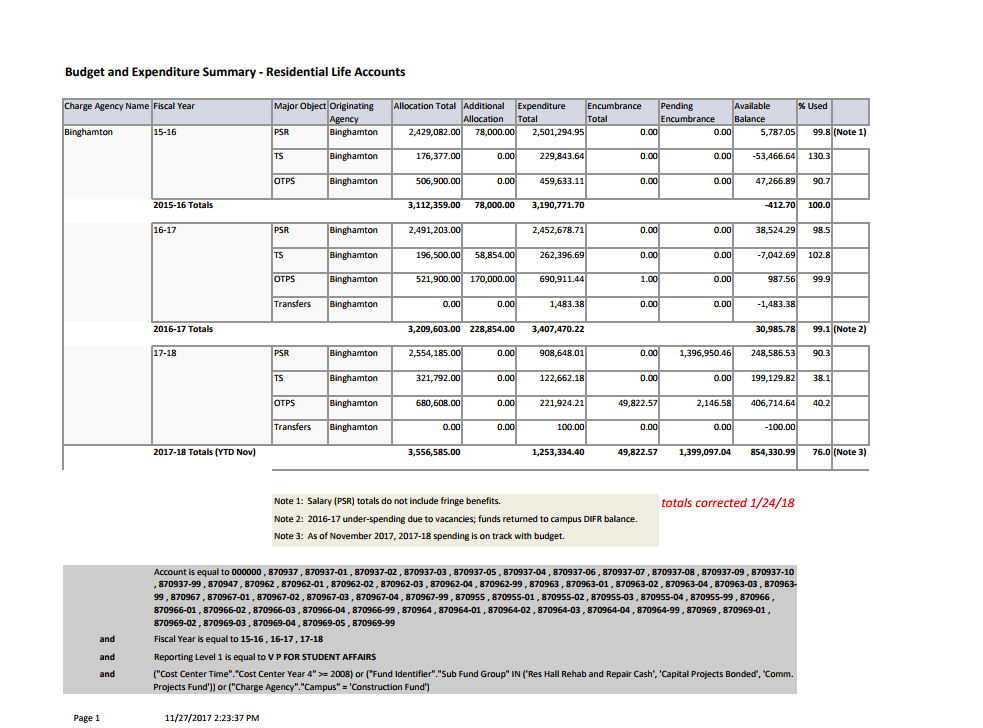
The Office of Residential Life is one of the most prominent offices on campus, tasked with overseeing the operation of residential halls and communities and commanding a budget that has increased by roughly 14 percent over the past three years.
This year, ResLife was allocated over $3.5 million even though it didn’t use all of last year’s budget due to staff vacancies. According to Cornelia Mead, assistant vice president for student affairs administration and auxiliaries, only large budget changes need to be approved by Binghamton University’s administration. Other, smaller changes involving salary budgeting are not subject to administrative oversight.
“In a lot of cases, budgets continue without any changes unless there is a major change in things,” Mead said. “[ResLife] gets roughly the same every year, and I believe they are allocated a percentage change for personnel based on contract agreements, but those changes do not need to get approved.”
Every semester, roughly 7,000 students pay rent for their on-campus housing — money that goes into the Dormitory Income Fund Reimbursable, which allocates money for repairs, cleaning and updates to residence halls. The Dormitory Income Fund Reimbursable also funds ResLife, which oversees the operation of residence halls and communities on campus. Their budget is split into three categories: personal service regular, which pays full-time staff salaries; temporary service, which pays student workers such as residential assistants; and other than personal service, which covers the cost of extra items for dorm halls and offices, such as cooking supplies, additional equipment and office furniture.

“The big-picture housing pie starts with all of the student [board income], and it is a closed system, so the board income — and only the board income — has to pay for everything to do with the residential halls,” Mead said. “[The Dormitory Income Fund Reimbursable] is the entire pie, and the [ResLife] budget is a small piece of that pie.”
Although personal service and temporary service expenses have remained fairly stagnant, other than personal service spending increased by roughly $231,000 between the 2015-16 and 2016-17 academic years. According to Paola Mignone, assistant dean for financial operations at ResLife, providing Old Digman Hall of Dickinson Community with exercise equipment contributed to this increase.
“There are things that you do after the building is renovated to stock up the building, to prepare the building, such as pots and pans, that come out of that budget,” Mignone said. “In the case of Old Digman, it has an entire gym we have to stock.”
Mignone said other than personal service spending was also impacted by the addition of the Mountainview College STEAM Room in Appalachian Collegiate Center, and that sometimes, spending from a previous year can appear in the following year within the budget reports, depending on the timing of the spending.
“Some expenses that hit last fiscal year, based on timing, hit the business system and it looks like it’s a different fiscal year,” Mignone said. “You might buy something in May, and it doesn’t hit your account till August, it looks like a different fiscal year. Our business system is a true reporting, but it doesn’t always reflect what happens in terms of timing and projects.”


